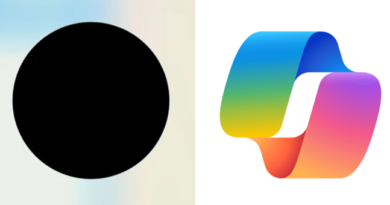Artisse AI raises $6.7M for its ‘more realistic’ AI photography app
Artisse, one of the many AI photo creation apps that let users generate photos of themselves using uploaded selfies combined with prompts, has raised $6.7 million in seed funding, following AI selfies’ viral moment. Similar to others on the market, Artisse users upload photos of themselves to train its AI on their images, then use a text or image prompt to generate new photos of themselves across various settings, postures, and styles. But unlike the competition, Artisse is focused on making its images more photo-realistic, so they could stand in for professional photography if required.
Under the hood, Artisse is using its own propriety model, alongside best practices and elements from open source models and tools. Because of the hyper-realistic images the app produces, Artisse became a top photo app on the Google Play Store at various times across markets including the U.S., U.K., Japan, South Korea, Canada, and Australia.
The app has been downloaded over 200,000 times to date, and its images reached an estimated 43 million people across social media, the company claims. To date, users have created over 5 million photos, its website notes.

Image Credits: Artisse
Originally bootstrapped, Artisse was founded by William Wu, who previously worked in investment and strategy with roles at McKinsey & Co. and Oaktree Capital. The founder told TechCrunch back in September that he was inspired to build an AI app after seeing how many people had “perfect” photos uploaded to their Instagram or dating profiles. However, he realized that to have those results, you’d need time and expertise with personal photography. His idea was to make that same type of photography more accessible to anyone with a smartphone
Training Artisse therefore takes longer than competitors — around 30 to 40 minutes, though the AI images take minutes to produce. Wu said this system allows it to produce more realistic images than some others on the market, as a result.
This is what Wu hopes will be Artisse’s differentiating feature.
“Midjourny clearly does well when it comes to landscapes and design work, but when it comes to people — the way to think about it, is there’s a lot of different factors and you need to build individual training sets for each of those factors.”
That means Artisse’s model takes into consideration factors like race, facial structures, skin color, lighting, camera type, camera angle, the way the body is shot, the scenery, and more.
Plus, adds Wu, “There’s an incredible amount of work that’s required in terms of data collection, data tagging, knowing what makes a good camera photo versus not.”
Artisse’s AI was trained on public domain photography, Wu notes.
“A lot of this is not about volume, it’s actually a lot about the quality of the image,” he says.
Like many apps in this space, Artisse has to overcome struggles in areas like the diversity of body shapes and skin tones, especially if users upload a reference photo where the person in the image is thinner. Another viral app Remini faced complaints in this area from women who said the app made them skinnier or with larger chests.
Artisse aims to stand out from apps like Remini and Lensa by producing photos that could be used in real life.
However, the startup’s AI model is flexible enough that users could do things with their photos that wouldn’t be appropriate, like changing their race, for example.
But Wu says he’s not encouraging that nor is this how people are generally using the product.

Image Credits: Artisse
Instead, Artisse’s users tend to leverage the app to post photos of themselves on social media — particularly those they wouldn’t be able to capture otherwise — like shots where they’re posed next to a fancy car or wearing some high-fashion look. Models and influencers are among Artisse’s early adopters along with some businesses using AI photography for their ads.
The app initially monetized by offering 25 photos for free, then charging around 20 cents per photo afterward. That attracted a casual audience who dabbled with the tech — Artisse said around 60-70% of users have been “light” users who try out the app one time. Of the 200K downloads, around 4,000 have converted to subscribers, which is the app’s new monetization model.
There are currently three tiers, priced at $7, $15, and $40 per month, where you receive anywhere from 25 to 370 photos.
Artisse claims to have tripled revenue to $1 million ARR in December 2023 and is on track to $2.5 million ARR as of this month.
“Revenue is growing pretty fast, payback period is relatively low,” Wu notes. “I see AI photography as a new category that should be probably of a similar size, if not bigger than, photo editing apps,” he says.
The startup’s $6.7 million seed funding round was led by The London Fund, a firm that makes strategic investments in high-growth companies with several consumer businesses in their portfolio.
The investment, which was inbound, made sense because the fund has an influencer marketing arm and could help with marketing the app, Wu explains. The round is still open to others.
Going forward, the 22-person team is looking to leverage its AI tech in other ways beyond consumer photos. It’s currently exploring virtual fitting room tech for online shopping, where you can model clothes on yourself in different fits and poses, as well as a group photo feature that could one day let you “pose” with a friend or even celebrity you’re a fan of (with permission). Shopping from AI photos and turning them into physical prints are other ideas being explored.




